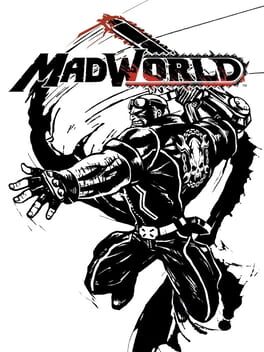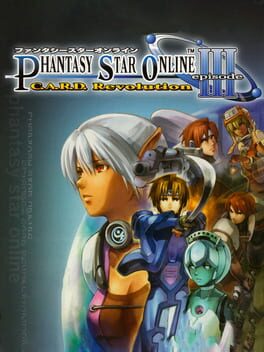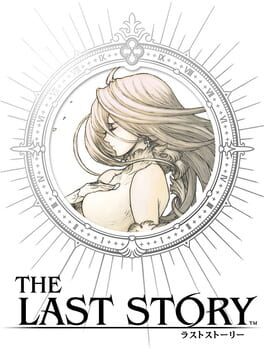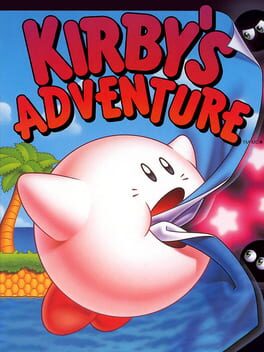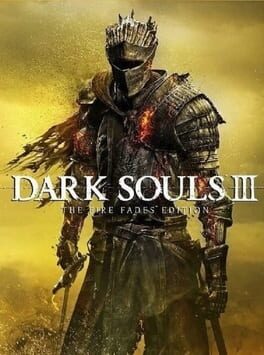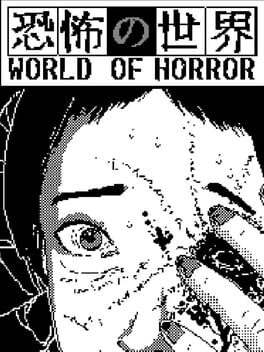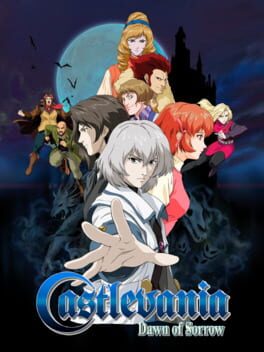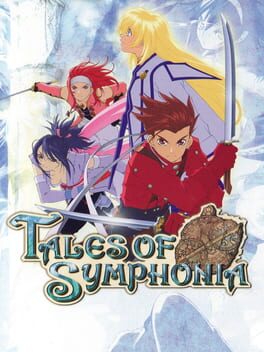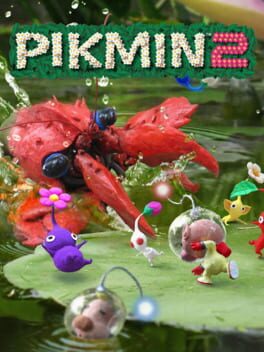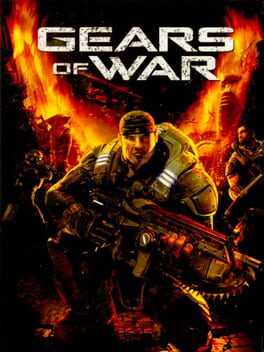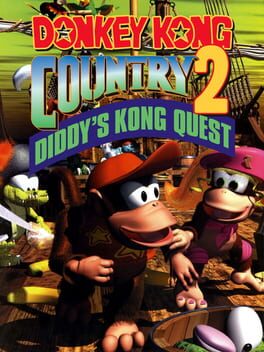2009
Somebody save this game from the Wii and get it on another platform, please.
One of the most stylish and aesthetically poignant games I've ever played. Everything from the monochrome look to the lowbrow humor from the announcers to the fantastic soundtrack that made me get more into hip-hop makes this game almost untouchable when it comes to a sense of style. It's fast, furious and bloody.
As a game, it starts off as a fun arcade game where you fuck people up in the most creative ways possible to earn points, but in later difficulties and levels the difficulty ramps up and starts demanding more from the player. It starts off as not a particularly hard game nor a long one, and the replay value comes from replaying through the game on higher difficulties. One could call the gameplay a shallow experience, but I don't think it overstays its welcome long enough to warrant that criticism.
If you can find this game for cheap, it's absolutely worth looking into. There are few games like it and it's just a rip-roaring good time.
One of the most stylish and aesthetically poignant games I've ever played. Everything from the monochrome look to the lowbrow humor from the announcers to the fantastic soundtrack that made me get more into hip-hop makes this game almost untouchable when it comes to a sense of style. It's fast, furious and bloody.
As a game, it starts off as a fun arcade game where you fuck people up in the most creative ways possible to earn points, but in later difficulties and levels the difficulty ramps up and starts demanding more from the player. It starts off as not a particularly hard game nor a long one, and the replay value comes from replaying through the game on higher difficulties. One could call the gameplay a shallow experience, but I don't think it overstays its welcome long enough to warrant that criticism.
If you can find this game for cheap, it's absolutely worth looking into. There are few games like it and it's just a rip-roaring good time.
Phantasy Star Online Episode 1 and 2 was a pivotal game for me growing up. So imagine my confusion with PSO Episode 3 was released. I think I have a lot of pretty straight-forward feelings for Episode 3 despite the hard pivot into a card-based strategy game. It's a fantastic game.
The narrative is a continuation of the Pioneer 2 plotline and now approaches it from two different story threads, the hero side and dark side, as Sega are wont to do in their 2000s games. And it's engaging. The general aesthetic of PSO is still here. The music is still amazing. There's still that sense of hopelessly lonely ambiance.
The pink elephant in the room is the genre change. This is not Episode 1 and 2. This is a turn-based strategy game with card mechanics. You build decks either as a hero and powering up your hunter, or you build decks full of monsters if you're playing on the dark side. Both are fun and offer unique approaches to combat. The game gets pretty difficult as time goes on from what I remember. But I'm also just bad at deck-building games.
I think in an era where games like Slay the Spire or Inscryption can exist, there's a world where Phantasy Star Online Episode 3 has a redemption arc. It's a fascinating diversion from PSO and PSU's traditional style of gameplay, and it's actually really fun. It's a pity that playing it online required so many hoops to jump through, but maybe private servers still live to this day. Who knows? Give it a shot.
The narrative is a continuation of the Pioneer 2 plotline and now approaches it from two different story threads, the hero side and dark side, as Sega are wont to do in their 2000s games. And it's engaging. The general aesthetic of PSO is still here. The music is still amazing. There's still that sense of hopelessly lonely ambiance.
The pink elephant in the room is the genre change. This is not Episode 1 and 2. This is a turn-based strategy game with card mechanics. You build decks either as a hero and powering up your hunter, or you build decks full of monsters if you're playing on the dark side. Both are fun and offer unique approaches to combat. The game gets pretty difficult as time goes on from what I remember. But I'm also just bad at deck-building games.
I think in an era where games like Slay the Spire or Inscryption can exist, there's a world where Phantasy Star Online Episode 3 has a redemption arc. It's a fascinating diversion from PSO and PSU's traditional style of gameplay, and it's actually really fun. It's a pity that playing it online required so many hoops to jump through, but maybe private servers still live to this day. Who knows? Give it a shot.
2021
Hoo boy did I wait a long time for a follow-up to Metroid Fusion, one of my favorite platformers of all time. And I was not disappointed. Metroid Dread is a masterclass that showcases why it puts the "Metroid" in Metroidvania. Dread is the king of control, feeling fluid and snappy navigating Samus through a wide variety of obstacles. Running, gunning, wall-jumping, sprinting, nothing feels as good as playing Samus in Metroid Dread.
The combat has never felt better, which is good because the game asks a lot of the player. Metroid Dread is hard. Like, really challenging. The boss encounters have generous respawns because you're going to be dying a lot. The challenge never feels insurmountable, but it can edge close to frustrating because of how hard the game pushes you.
The highlight of the game are the EMMI encounters, which are tense and terrifying. Samus feels powerless in the face of these enemies that are utterly unyielding in tracking you do, being able to follow you through doors and different sections. All have various means to stick to Samus whether it's freezing her, super speed, or whathaveyou.
I had no personal grievances with the game whatsoever. The environments are compelling, the music is appropriate but not as memorable as other games in the series, the exploration is a bit more linear but still has a lot of environmental puzzles to solve for power-ups. The only real turn-off is the game's challenge, especially its brutal boss fights.
But I felt right at home with Metroid Dread. Return of the Queen, baby.
The combat has never felt better, which is good because the game asks a lot of the player. Metroid Dread is hard. Like, really challenging. The boss encounters have generous respawns because you're going to be dying a lot. The challenge never feels insurmountable, but it can edge close to frustrating because of how hard the game pushes you.
The highlight of the game are the EMMI encounters, which are tense and terrifying. Samus feels powerless in the face of these enemies that are utterly unyielding in tracking you do, being able to follow you through doors and different sections. All have various means to stick to Samus whether it's freezing her, super speed, or whathaveyou.
I had no personal grievances with the game whatsoever. The environments are compelling, the music is appropriate but not as memorable as other games in the series, the exploration is a bit more linear but still has a lot of environmental puzzles to solve for power-ups. The only real turn-off is the game's challenge, especially its brutal boss fights.
But I felt right at home with Metroid Dread. Return of the Queen, baby.
2011
When I bring up the 2000s nostalgia of JRPGs, there's a good chance I'm referencing this game at some point or another. In preparation for making this list I usually read some literature, listen to some music, or more simply, just play the game to get caught up to speed. The Last Story was a game I remember very fondly, but I couldn't remember for the life of me why. 2012-2013 were some of my most turbulent years of my life, so a lot of gaming done around that time ended up in the memory hole, never to be seen or heard from again.
Fast-forward to 2024, and I've hooked my Wii back up to my HDTV. It took a converter to do so, but I have a lot of Wii games I want to play, especially for this list. The Last Story I bought the collector's edition for when it had a pricing error of 8 dollars on Amazon. It was a part of the Operation Rainfall trilogy of games--one with arguably the largest pedigree--and was developed by Mistwalker under Hironobu Sakaguchi's guiding light, with Noduo Uematsu's beautiful music accompanying it. The game has a compelling art style that, while looking like somebody smeared vaseline on my TV, still looks compelling and gorgeous to this day.
The Last Story had a rather subdued release. It's not particularly remembered among the Operation Rainfall games considering the massive shadow Xenoblade Chronicles cast, but at least it's not Pandora's Tower, lost somewhere to obscurity. And given that, I've met so many people who don't know what the Hell this game is or anything of note other than who made it.
The Last Story is a love story meets political struggle. Let's not mince words here; the story is generic. But its strength lies in the fantastic characterization, banter, and investment in its characters. Even booting the game up for the first time in over a decade, they immediately throw you into the action with all these characters charmingly shooting the shit and working with each other. The romance feels organic and developed. The world and aesthetic they created is very much a fantasy setting you'd expect from Sakaguchi.
So how does it play? Well, it's an Action RPG with a lot of tactics work behind it. The game utilizes a cover and stealth system, and you can aim your crossbow at enemies to signal your party to do various tactics like dumping magic in a chosen spot. There's also an aggro system. The combat is Ys-styled where it consists of running aggressively at enemies until they die, while blocking and dodging. Frankly there's a lot going on with the battle system. It's a fascinating take on a battle system that feels like it could've laid the groundwork for a lot more tactical ARPGs to come in the future.
But honestly, we are here for Sakaguchi and Uematsu. The story has a classic JRPG feel to it, accompanied by gorgeous music. The game has an immaculate vibe to it that just makes the worldbuilding and storytelling compelling, even if it covers a lot of ground both have covered before. It's just a very back-to-basics strong JRPG with some unique spins on the gameplay (ONLINE MULTIPLAYER).
"Final Fantasy" has sort of become a word salad as time has gone on, two terms that just signal an ongoing JRPG franchise, unaware of the irony that it's neither a singular fantasy nor the last one. The Last Story was Mistwalker's last game on console platforms before jumping ship to mobile and iOS. It's a very self-contained, succinct, complete story with a happy ending. And coming out in the twilight years of the Wii in the early 2010s as the gaming industry moved towards the AAA singularity, The Last Story really does sort of feel like the last of its kind, a very faithful-to-tradition, honest JRPG.
Strongly recommend. It's a hard game to play nowadays, but worth it for some forgotten nostalgia.
Fast-forward to 2024, and I've hooked my Wii back up to my HDTV. It took a converter to do so, but I have a lot of Wii games I want to play, especially for this list. The Last Story I bought the collector's edition for when it had a pricing error of 8 dollars on Amazon. It was a part of the Operation Rainfall trilogy of games--one with arguably the largest pedigree--and was developed by Mistwalker under Hironobu Sakaguchi's guiding light, with Noduo Uematsu's beautiful music accompanying it. The game has a compelling art style that, while looking like somebody smeared vaseline on my TV, still looks compelling and gorgeous to this day.
The Last Story had a rather subdued release. It's not particularly remembered among the Operation Rainfall games considering the massive shadow Xenoblade Chronicles cast, but at least it's not Pandora's Tower, lost somewhere to obscurity. And given that, I've met so many people who don't know what the Hell this game is or anything of note other than who made it.
The Last Story is a love story meets political struggle. Let's not mince words here; the story is generic. But its strength lies in the fantastic characterization, banter, and investment in its characters. Even booting the game up for the first time in over a decade, they immediately throw you into the action with all these characters charmingly shooting the shit and working with each other. The romance feels organic and developed. The world and aesthetic they created is very much a fantasy setting you'd expect from Sakaguchi.
So how does it play? Well, it's an Action RPG with a lot of tactics work behind it. The game utilizes a cover and stealth system, and you can aim your crossbow at enemies to signal your party to do various tactics like dumping magic in a chosen spot. There's also an aggro system. The combat is Ys-styled where it consists of running aggressively at enemies until they die, while blocking and dodging. Frankly there's a lot going on with the battle system. It's a fascinating take on a battle system that feels like it could've laid the groundwork for a lot more tactical ARPGs to come in the future.
But honestly, we are here for Sakaguchi and Uematsu. The story has a classic JRPG feel to it, accompanied by gorgeous music. The game has an immaculate vibe to it that just makes the worldbuilding and storytelling compelling, even if it covers a lot of ground both have covered before. It's just a very back-to-basics strong JRPG with some unique spins on the gameplay (ONLINE MULTIPLAYER).
"Final Fantasy" has sort of become a word salad as time has gone on, two terms that just signal an ongoing JRPG franchise, unaware of the irony that it's neither a singular fantasy nor the last one. The Last Story was Mistwalker's last game on console platforms before jumping ship to mobile and iOS. It's a very self-contained, succinct, complete story with a happy ending. And coming out in the twilight years of the Wii in the early 2010s as the gaming industry moved towards the AAA singularity, The Last Story really does sort of feel like the last of its kind, a very faithful-to-tradition, honest JRPG.
Strongly recommend. It's a hard game to play nowadays, but worth it for some forgotten nostalgia.
I remember when Ocarina of Time came out. It was close to my 10th birthday, and was a particularly warm and dry winter. The game was 75 dollars and the carts were gold. I have so many distinct memories of the game that it would be impossible to narrow down which ones stuck with me the most.
Ocarina of Time was a weird, dark, and creepy game. Redeads freezing your controls and slowly meandering their way towards you while screaming is an all-timer in "horror elements in a non-horror game", next to whatever the fuck Dead Hands are doing, what ghoulish shit to put into an E-rated game. Of course that wasn't the end of how dark and fucked-up this game got, but people tend to forget how bleak OoT actually was when its successor was basically OoT's dark weirdness cranked up to 11.
The game introduced the ground-breaking Z-targeting system, or when your camera locks onto an enemy. Yes, this game created that. It introduced a slew of what would later become popular tropes or game design decisions because this became the blueprint for 3D adventure games.
It really felt like the epic fantasy game we dreamed of in 1998. This was after A Link to the Past and Link's Awakening, big shoes to fill. And given Super Mario 64's success, people expected Zelda's introduction to 3D to be just as grandiose and game-changing. And there's nothing clever or witty to say about that, because it was those things and more. Ocarina of Time is considered one of, and frequently just the greatest game of all time for valid reasons.
Ocarina of Time's success did a lot of things for better or worse for Zelda. It became the emblematic title, the industry standard. A lot of Zelda titles have spent their time chasing OoT's success or innovation, and all of its successors have shown their age in one way or another. While time has shown the cracks in titles like Skyward Sword, Twilight Princess, and even The Windwaker, Ocarina of Time has only been reveled more for its impact.
It's a game that just doesn't seem to age. It still holds up. It's still a miraculous adventure game with a massive scope, epic setpieces, and immaculate pacing. Whereas I felt like other Zelda games have issues with bloat or had uneven pacing, why did they get it right so much the first time. The rate of which the story unfolds and you gradually progress through it is still untouchable. Whereas some items you got were clever one-offs in later games, every tool you got in OoT felt like a meaningful impact in how you interfaced with the world, felt like Link was gradually becoming stronger and more capable.
Part of me thinks I'm a nostalgic old bint, but I can see other 3D Zelda games pre-BotW warts and all, beautiful but flawed games attempting to get out from underneath Ocarina of Time's shadow. Its legacy seems insurmountable to overcome. The only reason other Zelda games are higher on this list is because they had to deviate so heavily from what's become formulaic for the Zelda series. When you look at the origin point of most modern adventure games, virtually all of them have some of OoT's DNA in them.
I'm just past 35 and I can still vividly remember every corner of this game. I remember details of this game from nearly three decades ago more clearly than I remember my relatives' faces. Ocarina of Time has stood the test of it. Still a marvelous game.
Ocarina of Time was a weird, dark, and creepy game. Redeads freezing your controls and slowly meandering their way towards you while screaming is an all-timer in "horror elements in a non-horror game", next to whatever the fuck Dead Hands are doing, what ghoulish shit to put into an E-rated game. Of course that wasn't the end of how dark and fucked-up this game got, but people tend to forget how bleak OoT actually was when its successor was basically OoT's dark weirdness cranked up to 11.
The game introduced the ground-breaking Z-targeting system, or when your camera locks onto an enemy. Yes, this game created that. It introduced a slew of what would later become popular tropes or game design decisions because this became the blueprint for 3D adventure games.
It really felt like the epic fantasy game we dreamed of in 1998. This was after A Link to the Past and Link's Awakening, big shoes to fill. And given Super Mario 64's success, people expected Zelda's introduction to 3D to be just as grandiose and game-changing. And there's nothing clever or witty to say about that, because it was those things and more. Ocarina of Time is considered one of, and frequently just the greatest game of all time for valid reasons.
Ocarina of Time's success did a lot of things for better or worse for Zelda. It became the emblematic title, the industry standard. A lot of Zelda titles have spent their time chasing OoT's success or innovation, and all of its successors have shown their age in one way or another. While time has shown the cracks in titles like Skyward Sword, Twilight Princess, and even The Windwaker, Ocarina of Time has only been reveled more for its impact.
It's a game that just doesn't seem to age. It still holds up. It's still a miraculous adventure game with a massive scope, epic setpieces, and immaculate pacing. Whereas I felt like other Zelda games have issues with bloat or had uneven pacing, why did they get it right so much the first time. The rate of which the story unfolds and you gradually progress through it is still untouchable. Whereas some items you got were clever one-offs in later games, every tool you got in OoT felt like a meaningful impact in how you interfaced with the world, felt like Link was gradually becoming stronger and more capable.
Part of me thinks I'm a nostalgic old bint, but I can see other 3D Zelda games pre-BotW warts and all, beautiful but flawed games attempting to get out from underneath Ocarina of Time's shadow. Its legacy seems insurmountable to overcome. The only reason other Zelda games are higher on this list is because they had to deviate so heavily from what's become formulaic for the Zelda series. When you look at the origin point of most modern adventure games, virtually all of them have some of OoT's DNA in them.
I'm just past 35 and I can still vividly remember every corner of this game. I remember details of this game from nearly three decades ago more clearly than I remember my relatives' faces. Ocarina of Time has stood the test of it. Still a marvelous game.
1993
Kirby's Adventure was a monumental follow-up to what was at best a retail tech demo on the Gameboy with Kirby's Dreamland. Emerging on the NES in its twilight years well into the beginning of the SNES's life cycle, Kirby's Adventure was a game pushing the limits of the console it was on. It really was a grandiose adventure through a wide variety of locales with fantastic music (BUTTER BUILDING) and actual cutting-edge graphics for the NES.
And let's not even get started on the fact that this was the game that introduced one of the most iconic abilities in video games, Kirby eating dudes and obtaining their powers through osmosis. If you wanted Kirby to breath fire, ice, shoot lasers, throw cutter, or turn into a fucking wheel, this game has you covered. The imagination at work was nearly endless, only further innovated on in later games in the series by making Kirby wear funny hats. It really was a game you could play however you want.
Whereas Kirby's Dreamland established Kirby as a cute quirky mascot for Nintendo, Kirby's Adventure was the game that solidified his place in the video game pantheon of great franchises. Even if it's a bit on the easy side and not a particular long game, it's fantastic to see where Kirby came from, and the game's platforming and weird boss fights still hold up 3 decades later. What a master class.
And let's not even get started on the fact that this was the game that introduced one of the most iconic abilities in video games, Kirby eating dudes and obtaining their powers through osmosis. If you wanted Kirby to breath fire, ice, shoot lasers, throw cutter, or turn into a fucking wheel, this game has you covered. The imagination at work was nearly endless, only further innovated on in later games in the series by making Kirby wear funny hats. It really was a game you could play however you want.
Whereas Kirby's Dreamland established Kirby as a cute quirky mascot for Nintendo, Kirby's Adventure was the game that solidified his place in the video game pantheon of great franchises. Even if it's a bit on the easy side and not a particular long game, it's fantastic to see where Kirby came from, and the game's platforming and weird boss fights still hold up 3 decades later. What a master class.
Dark Souls 3 is more or less the direct sequel to Dark Souls 1. If Dark Souls 1 was important to you, Dark Souls 3 does its best to wrap up the legacy that the series started. Dark Souls 3 really does feel like the end of things, either it being a refined mishmash of DkS1, DkS2, and Bloodborne, or its story beats making it abundantly clear that things aren't meant to last forever.
The Ringed City is a suitable ending to the entire series, and the Ashes of Ariandel gives a bullshit but enjoyable boss fight at the end of it. The DLC doesn't feel like Dark Souls 2 where it heavily re-orientates the core experience. It's just add-on content that's fun and, well, an expansion of the base game.
The gameplay feels like an advancement of Dark Souls 1 with sprinkles of 2, and heavy influences of Bloodborne in there just to speed things up a bit compared to its predecessors. Unlike the bullshit you dealt with in DkS2 and adaptability, everything just feels "right" in DkS3. Movement feels appropriate, i--frames feel fixed, and stamina is back to mattering unlike Bloodborne where it's merely a suggestion. The magic system was revamped a-la Demon's Souls where you have a proper magic/special move meter instead of the archaic Dark Souls 1 and 2 method of spellcasting.
Dark Souls 3 is in that awkward place where DkS2 made a bunch of changes to the game's formula, fucked up a lot of it, and DkS3 spends time undoing most of what that game set out to do, for better and for worse. It lacks some of the more adventurous changes that Dark Souls 2 had, even the ones that worked out well. Whereas Bloodborne felt like a step aggressively forward and DkS2 felt like a step, well, somewhere, Dark Souls 3 is comfortable just slightly moving things forward. Its only real flaw is that it feels a bit safe, that it does not push the series towards any meaningful direction. Less friendlier takes would call the game uninspired.
It's just comfortable with cleaning things up and playing the series out with some nice fanservice. Which is fine and good.
The Ringed City is a suitable ending to the entire series, and the Ashes of Ariandel gives a bullshit but enjoyable boss fight at the end of it. The DLC doesn't feel like Dark Souls 2 where it heavily re-orientates the core experience. It's just add-on content that's fun and, well, an expansion of the base game.
The gameplay feels like an advancement of Dark Souls 1 with sprinkles of 2, and heavy influences of Bloodborne in there just to speed things up a bit compared to its predecessors. Unlike the bullshit you dealt with in DkS2 and adaptability, everything just feels "right" in DkS3. Movement feels appropriate, i--frames feel fixed, and stamina is back to mattering unlike Bloodborne where it's merely a suggestion. The magic system was revamped a-la Demon's Souls where you have a proper magic/special move meter instead of the archaic Dark Souls 1 and 2 method of spellcasting.
Dark Souls 3 is in that awkward place where DkS2 made a bunch of changes to the game's formula, fucked up a lot of it, and DkS3 spends time undoing most of what that game set out to do, for better and for worse. It lacks some of the more adventurous changes that Dark Souls 2 had, even the ones that worked out well. Whereas Bloodborne felt like a step aggressively forward and DkS2 felt like a step, well, somewhere, Dark Souls 3 is comfortable just slightly moving things forward. Its only real flaw is that it feels a bit safe, that it does not push the series towards any meaningful direction. Less friendlier takes would call the game uninspired.
It's just comfortable with cleaning things up and playing the series out with some nice fanservice. Which is fine and good.
2020
I've only put a few hours into World of Horror and I am already immediately captivated by its sense of style and aesthetic. A roguelite with varying story threads every run is such an ingenious idea. Decisions feel impactful, runs are heavily reliant on your character's loadout and inherent abilities versus what eldritch god is threatening the town this run. The RPG mechanics are brutal, unforgiving and give a sense of desperation that any fight could be your last, or leave you irreparably hurt.
This entire game is just a mood. It's really, really fucking good.
This entire game is just a mood. It's really, really fucking good.
The second "Metroidvania" Castlevania game I touched, and boy howdy was it a good one. The map design was good, exploration was fun, and the wide variety of souls you got to augment your combat experience always kept things interesting. The bonus modes with more traditional Castlevania characters were a nice treat on top.
The only real marks against the game was the obligatory touchscreen gimmick with scrawling enemy seals, and the fact that with a game like this there's always going to be a pre-requisite amount of grinding for souls, and good golly are the droprates in this game at times outright terrible.
Play Aria first before jumping into this. Both are fantastic though.
The only real marks against the game was the obligatory touchscreen gimmick with scrawling enemy seals, and the fact that with a game like this there's always going to be a pre-requisite amount of grinding for souls, and good golly are the droprates in this game at times outright terrible.
Play Aria first before jumping into this. Both are fantastic though.
2003
When I compare games to the nostalgic whimsy of an early 2000s JRPG, there's a good chance I'm probably comparing it to Tales of Symphonia. It certainly is one of the JRPGs of all time.
The original Gamecube version came out in checks notes Oh God 2003. This game is almost 20 years old in the States. I just aged everybody reading this review, you're welcome. But yeah, it was a big epic JRPG on a Nintendo platform at the turn of the century: the N64 and GCN days were not common grounds for JRPGs, so Tales of Symphonia for a lot of us was an oasis of a corny anime RPG in what was pretty close to a dead genre on Nintendo console platforms. And ToS is so anime it almost hurts. The art style on top of the cel-shaded graphics and anime opening made this feel like just an anime in video game form.
This also comes down to the writing, which feels like a stock-standard fantasy anime. You have the protagonist who is too stupid to die and his wife who's too selfless to live, the parental sibling and the shithead sibling, the eye candy, the stalwart child with an oversized weapon, and everyone's favorite wacky pervert who's actually immensely tortured on the inside. The story literally starts on the whole "The chosen one must revive a dying land" trope, and I'm not paraphrasing. The subtext is actually just text.
The combat is the skeletal beginnings of the ARPG sub-genre that earlier Tales games have established, and it ranges from good button-mashy fun to completely mindless and uninteresting. The exploration is open-ended as Hell but always has a primary destination the game is shuttling you to. The puzzles are simple enough and straightforward.
So why is this game so deeply beloved? Primarily it was the cultural zeitgeist it found itself in the middle of; the late 90s and early 2000s there were very little RPGs on the N64 and Gamecube, so getting one was kind of a mythical presence. This was the first JRPG for a lot of people who grew up with a Gamecube. It was in the right place at the right time.
And also because... Tales of Symphonia is just a pretty good game. It's definitely dated for sure, but barring how generic and trope-heavy the story is, the stakes are felt, the motivations of every character make sense, and with the abundance of writing the game has from a sheer size and scope, the characters have a lot of space to breathe and grow and be charming.Except Lloyd and Colette, horrendous main characters in a cast of infinitely more interesting ones. The fantasy setting is beautifully realized, it feels epic, and you just like seeing how all these characters interact with the worlds they're in.
I floated between 3.5 and 4 stars for this game because my feelings of Symphonia are complicated. I think older Tales games are more esoteric and interesting, and new Tales games have improved mechanically enough to render Symphonia feeling a bit dated. My feelings for the game at the time were warmer because I had less to compare it to, but as more JRPGs made it under my belt, the more that Symphonia lost some of that luster. But it's still a good game, a great game for some. It evokes some powerful nostalgia. But without nostalgia, the game feels more like an afterthought nowadays.
The original Gamecube version came out in checks notes Oh God 2003. This game is almost 20 years old in the States. I just aged everybody reading this review, you're welcome. But yeah, it was a big epic JRPG on a Nintendo platform at the turn of the century: the N64 and GCN days were not common grounds for JRPGs, so Tales of Symphonia for a lot of us was an oasis of a corny anime RPG in what was pretty close to a dead genre on Nintendo console platforms. And ToS is so anime it almost hurts. The art style on top of the cel-shaded graphics and anime opening made this feel like just an anime in video game form.
This also comes down to the writing, which feels like a stock-standard fantasy anime. You have the protagonist who is too stupid to die and his wife who's too selfless to live, the parental sibling and the shithead sibling, the eye candy, the stalwart child with an oversized weapon, and everyone's favorite wacky pervert who's actually immensely tortured on the inside. The story literally starts on the whole "The chosen one must revive a dying land" trope, and I'm not paraphrasing. The subtext is actually just text.
The combat is the skeletal beginnings of the ARPG sub-genre that earlier Tales games have established, and it ranges from good button-mashy fun to completely mindless and uninteresting. The exploration is open-ended as Hell but always has a primary destination the game is shuttling you to. The puzzles are simple enough and straightforward.
So why is this game so deeply beloved? Primarily it was the cultural zeitgeist it found itself in the middle of; the late 90s and early 2000s there were very little RPGs on the N64 and Gamecube, so getting one was kind of a mythical presence. This was the first JRPG for a lot of people who grew up with a Gamecube. It was in the right place at the right time.
And also because... Tales of Symphonia is just a pretty good game. It's definitely dated for sure, but barring how generic and trope-heavy the story is, the stakes are felt, the motivations of every character make sense, and with the abundance of writing the game has from a sheer size and scope, the characters have a lot of space to breathe and grow and be charming.
I floated between 3.5 and 4 stars for this game because my feelings of Symphonia are complicated. I think older Tales games are more esoteric and interesting, and new Tales games have improved mechanically enough to render Symphonia feeling a bit dated. My feelings for the game at the time were warmer because I had less to compare it to, but as more JRPGs made it under my belt, the more that Symphonia lost some of that luster. But it's still a good game, a great game for some. It evokes some powerful nostalgia. But without nostalgia, the game feels more like an afterthought nowadays.
2004
Pikmin 2 is a bit divisive among Pikmin games. The first Pikmin was a beautifully elegant experience about time and workload management. Pikmin 2 ditches the time management aspect of the game for dungeons and significantly more challenge. Pikmin in Pikmin 2 feel infinitely more disposable, which is good because a lot of your Pikmin are going to get mowed down, incinerated, eaten, drowned, electrocuted, and even good-ol'-fashioned shot by guns.
Pikmin 2 almost feels like a roguelike with procedurally-generated dungeons. It's packed to the brim with loot and hazards to micro-manage your Pikmin through. With infinite time to complete the game and a portion of the challenge that came with that in Pikmin 1 being eliminated, Pikmin 2 is just hard. Monster types are brutal with lots of them, and with more Pikmin, you have significantly more bandwidth to kill enemies with them--either by crushing them with Purples or just straight-up sacrificing White Pikmin for the glorious cause. The slew of monster types keeps the gameplay interesting and occasionally terrifying. And the coolest feature is the Piklopedia, a journal of sorts for every enemy and every piece of loot you grab in the game.
Pikmin 1 felt like an honest arcade experience, where a lot of it became about minmaxing your work days maneuvering through levels and harvesting loot to fix your ship; it wasn't a particularly long game for it, but it was replayable. Pikmin 2 feels more like a complete game. It's a harder game with arguably a major hook fans of the first game liked gone, but it's still a beautifully designed game.
Pikmin 2 almost feels like a roguelike with procedurally-generated dungeons. It's packed to the brim with loot and hazards to micro-manage your Pikmin through. With infinite time to complete the game and a portion of the challenge that came with that in Pikmin 1 being eliminated, Pikmin 2 is just hard. Monster types are brutal with lots of them, and with more Pikmin, you have significantly more bandwidth to kill enemies with them--either by crushing them with Purples or just straight-up sacrificing White Pikmin for the glorious cause. The slew of monster types keeps the gameplay interesting and occasionally terrifying. And the coolest feature is the Piklopedia, a journal of sorts for every enemy and every piece of loot you grab in the game.
Pikmin 1 felt like an honest arcade experience, where a lot of it became about minmaxing your work days maneuvering through levels and harvesting loot to fix your ship; it wasn't a particularly long game for it, but it was replayable. Pikmin 2 feels more like a complete game. It's a harder game with arguably a major hook fans of the first game liked gone, but it's still a beautifully designed game.
Frankly the only reason this game is so low on the list is because of recency bias. This game fucking rules. As my introduction to the series, I'm so impressed. Finding ways to customize your mech and make it your own personal weapon of war is engaging as hell. The story is compelling and a lot more coherent than From's recent implicit storytelling in their games, and I haven't even talked about the gameplay yet.
It's blistering, nail-biting action that feels visceral and frantic, and there are a load of builds to optimize your war-criming from blowing shit up with missiles, lasering things, using the pile bunker to impale at close range, or just some good ol' fashioned shotguns to blow enemy ACs into ribbons. The only real critique I have of the game is its difficulty can be daunting with a lot of uneven spikes that can be frustrating, and further S-ranking all the missions gets exceedingly challenging.
Fantastic fucking game. I haven't even gotten all endings or dipped my toes into the PVP, but I'm eager to continue my playthrough.
It's blistering, nail-biting action that feels visceral and frantic, and there are a load of builds to optimize your war-criming from blowing shit up with missiles, lasering things, using the pile bunker to impale at close range, or just some good ol' fashioned shotguns to blow enemy ACs into ribbons. The only real critique I have of the game is its difficulty can be daunting with a lot of uneven spikes that can be frustrating, and further S-ranking all the missions gets exceedingly challenging.
Fantastic fucking game. I haven't even gotten all endings or dipped my toes into the PVP, but I'm eager to continue my playthrough.
God, do I have complicated feelings on this game. Dark Souls 2 makes some of the most baffling and obtuse design choices for the entire series, with Scholar of the First Sin making some horrendous changes to enemy placements and layout. There are a ton of really drab bossfights that could pass as large enemies in other games. A lot of levels feel artificially challenging with weird design choices, aggravated further by SotFS's enemy placement issues and random petrified statues. Adaptability is a terrible stat and making iframes variable feels horrendous for dodging. Soul Memory is a good idea on paper but in practice ends up screwing players in PvP over more often than not.
So what makes this game good? Well, it's still a Souls game so it's still a baseline level of good. It probably has the best story in the entire series. It probably has the best build variety in the series and some incredibly good PvP. And the reason I put SotFS specifically on this list is because the DLC in Dark Souls 2 is the best-in-series and remedies a lot of problems I have with the base game. Enemies are weird and engaging, the new areas to explore have a lot of puzzle-solving and feel more akin to a Zelda dungeon. If the game itself was as good as the DLC, you'd likely have one of, if not the strongest game in the series.
Dark Souls 2 is a game of extremes that I respect profusely. It takes a lot of risks and while I think most of them don't pan out, the times that they do I think the series is at its best for it. At the very least I think it's worth trying out, despite being the oft-misaligned game in the series.
So what makes this game good? Well, it's still a Souls game so it's still a baseline level of good. It probably has the best story in the entire series. It probably has the best build variety in the series and some incredibly good PvP. And the reason I put SotFS specifically on this list is because the DLC in Dark Souls 2 is the best-in-series and remedies a lot of problems I have with the base game. Enemies are weird and engaging, the new areas to explore have a lot of puzzle-solving and feel more akin to a Zelda dungeon. If the game itself was as good as the DLC, you'd likely have one of, if not the strongest game in the series.
Dark Souls 2 is a game of extremes that I respect profusely. It takes a lot of risks and while I think most of them don't pan out, the times that they do I think the series is at its best for it. At the very least I think it's worth trying out, despite being the oft-misaligned game in the series.
2006
A classic and technical showhorse for the Xbox 360 era of graphics fidelity, Gear of War still doesn't fail to impress decades later. The cover system remains a revolutionary mechanic, even if the campaign itself utilizes some pretty mindless AI for the stop-and-pop cover shooting. There are a few gimmicks like the pseudo-stealth sections and vehicle segments that haven't aged gracefully, but the distilled combat experience still fucking rocks. The campaign moves quickly, keeps things fresh, and doesn't overstay its welcome.
The multiplayer remains a landmark classic, but reminiscing on it, it had a lot of problems. The ability to BM and disrespect others in the game was varied and even in some cases ingenious, but didn't avoid feeding into what was a particularly healthy online ecosystem in the first place; people who played Gears of War online were assholes, your lovable reviewer included. And not only did the gameplay loop encourage this, but also unintentionally so with some maps being able to be glitched out of, allowing players to grief each other pretty extensively.
Ah, good times. Gooooood times. Still, the campaign is lean and still hits hard for a classic.
The multiplayer remains a landmark classic, but reminiscing on it, it had a lot of problems. The ability to BM and disrespect others in the game was varied and even in some cases ingenious, but didn't avoid feeding into what was a particularly healthy online ecosystem in the first place; people who played Gears of War online were assholes, your lovable reviewer included. And not only did the gameplay loop encourage this, but also unintentionally so with some maps being able to be glitched out of, allowing players to grief each other pretty extensively.
Ah, good times. Gooooood times. Still, the campaign is lean and still hits hard for a classic.
